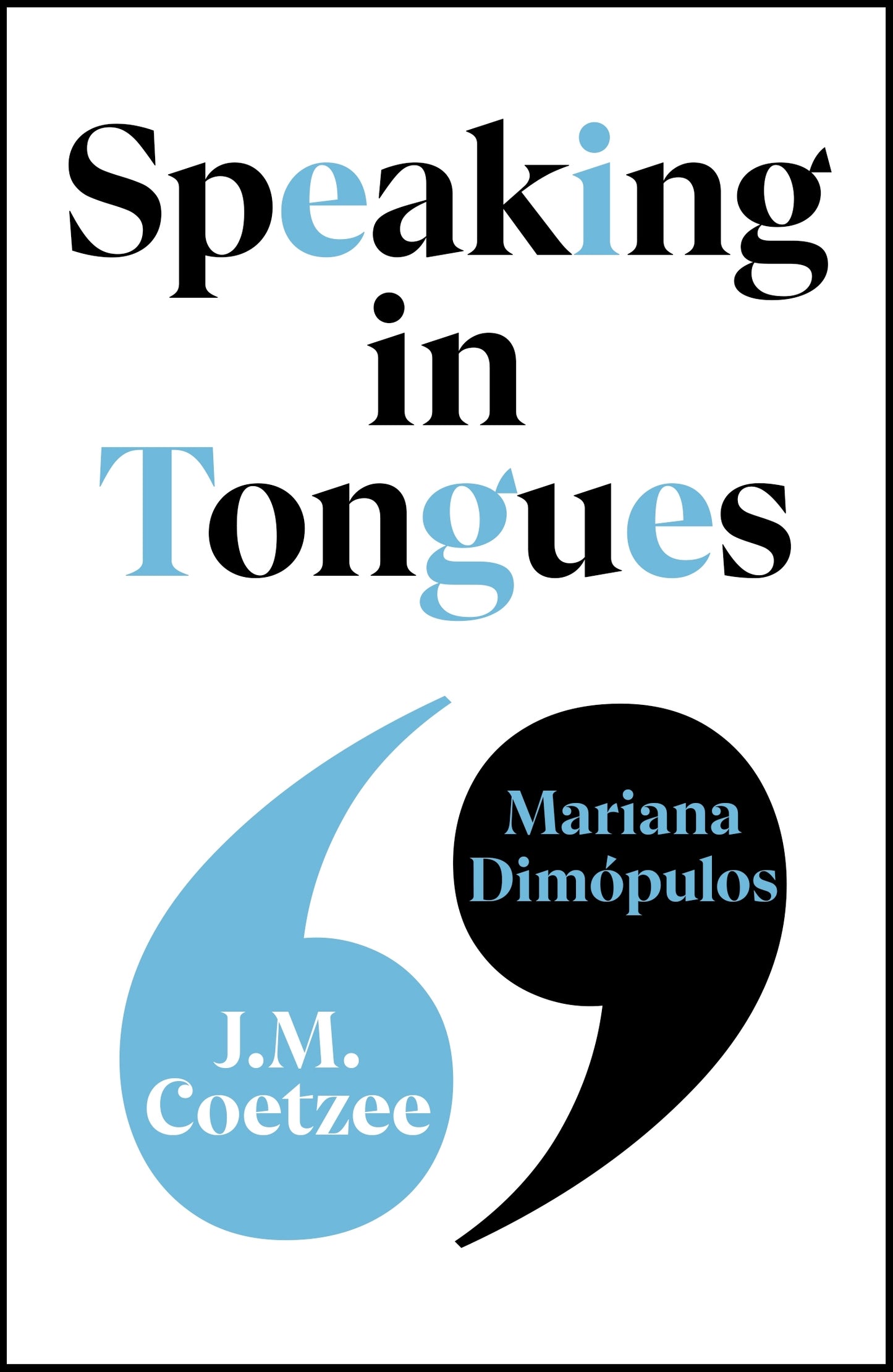J.M Coetzee, Mariana Dimopulos
Speaking In Tongues
Speaking In Tongues
Couldn't load pickup availability
A book about how language shapes us, from the Nobel and Booker-prizewinning author and his Spanish translator.
Lindsay's Review
South African author J. M. Coetzee, who now lives in Australia, is widely regarded as one of the most influential authors of contemporary literature. Less familiar to many of us will be his essays. His latest book, Speaking In Tongues, written in partnership with translator Mariana Dimopulos, is a fine introduction to his non-fiction work.
Speaking In Tongues is a discursive conversation between Coetzee and Dimopulos about the politics, intellectual hurdles and role of translation, both as a necessary evil to introduce works to readers of other languages and as an art form in and of itself. Coetzee and Dimopulos question and try to answer the fundamental difficulties and intricacies of translating texts between major and minor languages, particularly in today’s environment of race and gender politics, feminism and post-Colonial cultural reclamations.
The small book is a fascinating deep dive into the grey areas that authors and translators must consider when deciding how best to translate a novel or works of poetry. It seeks to tackle some of the lingering doubts that many readers have about translation of texts, including the influence of cultural and historical context, the differences between past language and present, and a translator’s impact on the original text - for instance, how their stance on issues invariably marks their translation.
Speaking In Tongues will be a stimulating and essential read for anyone who enjoys non-English texts. The back-and-forth nature of the discussion, and the recounting of the authors’ personal experiences as writers, ground the text and make for an enjoyable and satisfying book.
Speaking In Tongues is available to order in store.
A book about how language shapes us, from the Nobel and Booker-prizewinning author and his Spanish translator,
This is a book about languages, what languages can and what they cannot do.
In this dialogue between a Nobel Laureate and a leading translator, provocative ideas emerge about the evolution of language and the challenge of translation.
Language, historically speaking, has always been slippery. Two dictionaries provide two different maps of the universe- which one is true, or are both false? Speaking in Tongues - taking the form of a dialogue between Nobel-Laureate novelist J. M. Coetzee and eminent translator Mariana Dim pulos - explores questions that have constantly plagued writers and translators, now more than ever. Among them-
How can a translator liberate meanings imprisoned in the language of a text?
Why is the masculine form dominant in gendered languages while the feminine is treated as a deviation?
How should we counter the spread of monolingualism?
Should a translator censor racist or misogynistic language?
Does mathematics tell the truth about everything?
In the tradition of Walter Benjamin's seminal essay 'The Task of the Translator', Speaking in Tongues emerges as an engaging and accessible work of philosophy, shining a light on some of the most important linguistic and philological issues of our time.
Share


